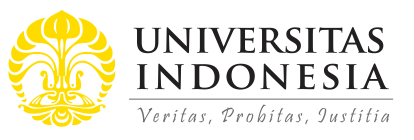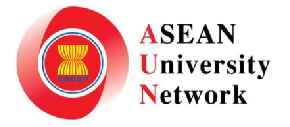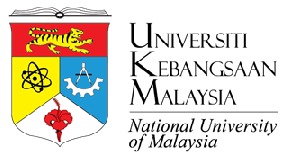
Abstract
This study examines initiatives intended to enhance community empowerment in the tourism village of Kembang Kuning, Central Java, Indonesia. One problem facing this community is an inability to carry out effective promotion to realize the tourism potential of the village. Despite the Kembang Kuning village’s potential qualities for tourism, there is a lack of local knowledge about marketing and communication strategies. The lack has hindered efforts to make the village known nationally. This study seeks to raise awareness and understanding of promotion strategies and simultaneously develop marketing communication strategies through active participation by the village tourism management team. Qualitative methods were employed in this study, and information was gathered through field observations, interviews, documentation, and active participation. This study found that in Kembang Kuning tourism village, community empowerment and tourism development when combined with a promotion and marketing communication strategy, have the potential to increase the village’s tourism potential.
References
Agustang, A., Adam, A., & Upe, A. (2021). Community empowerment strategy towards a sustainable rural community-based tourism village. Turkish Online Journal of Qualitative Inquiry, 12(3), 2065–2076. https://www.tojqi.net/index.php/journal/article/view/1629
Ajiyanto, R. (2019, May 31). Mudik ke Boyolali, coba main ke taman cantik ini. https://travel.detik.com/domestic-destination/d-4571661/mudik-ke-boyolali-coba- main-ke-taman-cantik-ini
Amin, M. A. S., & Priansah, P. (2019). Marketing communication strategy to improve tourism potential. BIRCI-Journal, 2(4), 160–166. https://doi.org/10.33258/ birci.v2i4.575
Buhalis, D. (2020). Technology in tourism-from information communication technologies to eTourism and smart tourism towards ambient intelligence tourism: A perspective article. Tourism Review, 75(1), 267–272. https://doi.org/10.1108/TR-06-2019-0258
Department of Economic and Social Affairs & Sustainable Development. (n.d.). Sustainable tourism. United Nations. https://sdgs.un.org/topics/sustainable-tourism
Hernanda, D. W., Mindarti, L. I., & Riyanto, R. (2018). Community empowerment based on good tourism governance in the development of tourism destination (Case study of Kawah Ijen tourism buffer zone “Kampung Kopi” Gombengsari Village, Kalipuro District, Banyuwangi Regency). Journal of Indonesian Tourism and Development Studies, 6(2), 126–135. https://doi.org/10.21776/ub.jitode.2018.006.02.08
John, S. P., & De’Villiers, R. (2020). Elaboration of marketing communication through visual media: An empirical analysis. Journal of Retailing and Consumer Services, 54, 102052. https://doi.org/10.1016/j.jretconser.2020.102052
Joo, D., Woosnam, K. M., Strzelecka, M., & Boley, B. B. (2020). Knowledge, empowerment, and action: Testing the empowerment theory in a tourism context. Journal of Sustainable Tourism, 28(1), 69–85. https://doi.org/10.1080/09669582.2019.1675673
Keputusan Menteri Nomor KM/107/KD.03/2021 tentang Panduan Pengembangan Desa Kreatif (2021). https://jdih.kemenparekraf.go.id/katalog-789- Keputusan%20Menteri
Laverack, G. (2006). Using a ‘domains’ approach to build community empowerment. Community Development Journal, 41(1), 4–12. https://doi.org/10.1093/cdj/bsi038
Nila, B., & Sari, R. (2020). The community empowerment in tourism development in Batu City.
Park, D., Kim, W. G., & Choi, S. (2018). Application of social media analytics in tourism crisis communication. Current Issues in Tourism, 22(15), 1–15. https://doi.org/10.1080/13683500.2018.1504900
Pop, R., Săplăcan, Z., Dabija, D., & Alt, M. (2021). The impact of social media influencers on travel decisions: The role of trust in consumer decision journey. Current Issues in Tourism, 25(5), 1–21. https://doi.org/10.1080/13683500.2021.1895729
Putri, A. E., Khadijah, U. L. S., & Novianti, E. (2020). Community empowerment in the development of mangrove tourism in Batu Karas of Pangandaran,West Java. Geojournal of Tourism and Geosites, 31(3), 972–978. https://doi. org/10.30892/gtg.31306-529
Semerádová, T., & Vávrová, J. N. (2016). Using a systemic approach to assess Internet marketing communication within hospitality industry. Tourism Management Perspectives, 20, 276–289. https://doi.org/10.1016/j.tmp.2016.09.007
Widiastuti, T., & Mihardja, E. (2019). Women’s participation on tourism villages’ management in the Dieng Pandawa Tourism awareness group. ASEAN Journal of Community Engagement, 3(1), 122–138. https://doi.org/10.7454/ajce.v3i1.175
Yang, J., & Zhu, G. (2021). The recovery strategy of rural tourism in the post-epidemic period. In W. Striełkowski (Ed.), Advances in social science, education and humanities research: Vol. 614 (pp. 136–140). Atlantic Press.
Zimmerman, M. A. (1995). Psychological empowerment: Issues and illustrations 1. American Journal of Community Psychology, 23(5), 581–599. https://doi. org/10.1007/BF02506983
Zubaedi. (2013). Pengembangan masyarakat: Wacana & praktik. Kencana.
Zuraya, N. (2021, February 26). 20 Destinasi wisata di Jateng tutup akibat pandemi. Republika. https://www.republika.co.id/berita/qp2uh2383/20-destinasi-wisata- di-jateng-tutup-akibat-pandemi
Recommended Citation
Purworini, Dian; Chasana, Rona R. B.; Palupi, Palupi; Setyawan, Sidiq; Triyono, Agus; and Yuwono, Iswahyudi T.
(2023).
The Role of Community Empowerment in the Development of a Marketing Communication Strategy for Kembang Kuning Tourism Village.
ASEAN Journal of Community Engagement, 7(1), 113-126.
Available at: https://doi.org/10.7454/ajce.v7i7.1193
Included in
Advertising and Promotion Management Commons, Marketing Commons, Public Relations and Advertising Commons







